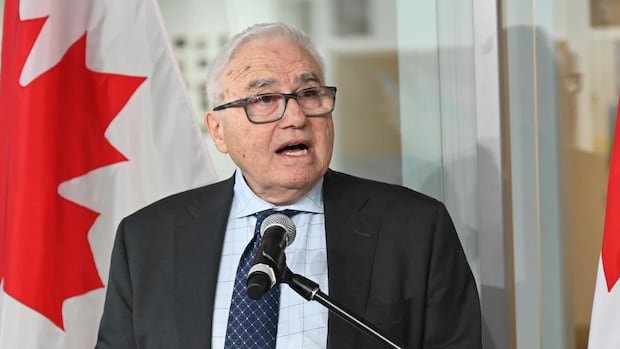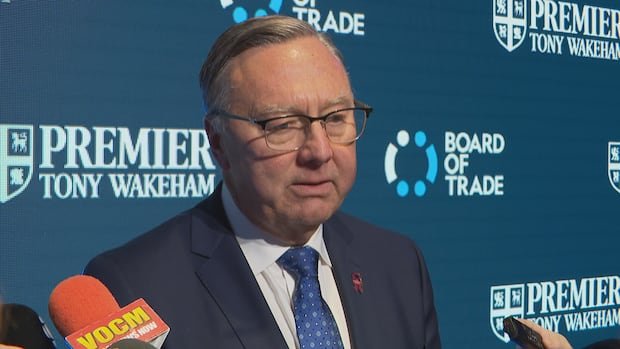Listen to this article
Dear 2 minutes
The audio version of this article is generated using text-to-speech, a technology based on artificial intelligence.
Changes to Quebec’s French language law are creating confusion for English-speaking residents trying to access services, according to a midterm report from Canada’s official languages commissioner.
Raymond Théberge said some health-care workers are still struggling to know when they can offer services in English under Bill 14, also known as Bill 96. He added that similar challenges are being felt in Quebec’s education and business sectors.
Théberge, speaking in Dieppe, NB, where he presented his conclusions on the 2023-2028 action plan, stressed that Ottawa must ensure that federal spending cuts do not affect the linguistic rights of Canadians. The plan includes $4.1 billion in funding for official language programs.
In its fall budget, the federal Liberal government outlined a plan to reduce program spending and administrative costs by about $60 billion over five years and eliminate 40,000 public service jobs by 2029. Théberge said previous budget cuts have already impacted language programs, including training, research and service delivery.
“The commissioner has put in black and white what we see on the ground every day,” said Eva Ludvig, president of Talking. Advocating. Living in Quebec (TALQ), an advocacy group for the province’s English-speaking community, said in a news release.
“Federal programs that work reasonably well in other parts of Canada stagnate, block or disappear into a black box when they reach Quebec’s English-speaking communities.”
TALQ expressed concern about Quebec’s Bill M-30, which it says further blocks or delays federal funding to English-speaking community organizations.
The bill means that any organization that receives more than 50 per cent of its funding from the province falls under provincial jurisdiction and cannot sign federal agreements without the approval of the Quebec minister responsible for relations with Canada.
This bill “could undermine community vitality. Nearly two years after its announcement, several key programs have yet to be launched,” the commissioner’s report says.
TALQ urges Ottawa to take concrete steps to improve services for English-speaking Quebecers before the current action plan ends and to incorporate equity into the next plan.
Ultimately, Canada’s official languages commissioner said he wants to ensure that language rights are not affected as a result of federal spending cuts.








